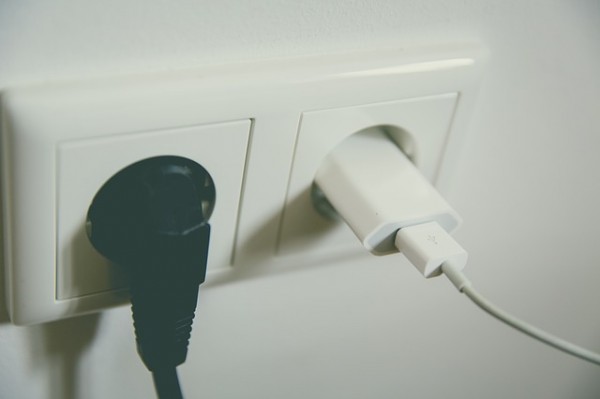By Telegiz , | April 01, 2020
- PREV
- Image1of0
- NEXT

Image by Markus Spiske from Pixabay
Like Us on Facebook
As people working from home amid the continuing coronavirus pandemic, many people might be placing themselves at unnecessary risk due to unsafe electrical setups and practices. Safety specialists have, in particular, warned people about overloading sockets, daisy-chaining, and charging devices on beds during the lockdown.
Hazardous electrical setups could place people at unnecessary risk
Electrical Safety First, a group committed to at-home safety, is concerned that many can be setting themselves at unnecessary risk because of hazardous electrical setups.
A recent survey through the charity noted a third of people who are the use of extension leads while working from home are unaware of the dangers they pose.
Almost half, or 44%, of folks who do use extension wires, said they are guilty of daisy-chaining - plugging an extension lead into some other extension.
Experts say these circumstances are notorious electric hazards and can pose a hearth threat.
Rick Hylton, head for domestic safety at the National Fire Chiefs Council (NFCC), told British news website Mirror.co.uk there is a rise in electrical fires as many people set up home offices and adjust to a working lifestyle.
'So, the fire service ask that you check you have running smoke alarms and a practiced escape plan in case there is a fireplace.
'But also make sure you comply with the simple recommendation to reduce your risk of an electrical fire.
'These fires are regularly preventable, and the advice will now not the simplest preserve you operating competently at domestic but reduce the stress on the hearth provider.'
Questionable electric practices are seen
The survey of 3,000 people also suggests awful habits by home employees include questionable practices in the bedroom. Around 70 percent of those currently working from home doing so for the first time due to COVID-19, the research added.
More than half of remote workers revealed to either often or sometimes placing their gadgets, such as laptops or phones, on their bed while it is charging.
Lesley Rudd, chief govt of Electrical Safety First, told Daily Mail not everyone could make sure their work stations are free from fire risks.
Experts also urged people to pay extra attention to electrical safety during our period of remote working.'
"Take a few minutes to make sure you're not [overloading] your plug sockets, and that you are charging your devices on hard, non-flammable surfaces," researchers said.
The charity urged the public to try its Socket Overload Calculator to test they're no longer plugging too many home equipment in at once, on its website, electricalsafetyfirst.org.uk.
Tips on working safely from home
Electrical fires are often preventable. Following these steps will not only keep you working safely at home but reduce the pressure on the fire service.
Don't charge electrical objects on beds.
Always place your gadgets on a hard, flat, non-flammable surface. Avoid overloading sockets and extension leads, check out this online socket calculator.
Keep your workstation tidy
Many could be working in a small workspace. Hence, place your hot and cold drinks far from electrical objects is essential.
Beware of cables
Take time to organize your cables as it can present a trip hazard to you and others to your home.
Don't daisy chain extension leads
If your cable doesn't reach you, don't plug it into another adaptor. Move your workspace closer to the socket or use an extended lead.
Be mindful during mealtime.
With many of us cooking meals at home, being undistracted by emails or work calls that result in the hob being left on unattended may help reduce fire risk.
-
Use of Coronavirus Pandemic Drones Raises Privacy Concerns: Drones Spread Fear, Local Officials Say

-
Coronavirus Hampers The Delivery Of Lockheed Martin F-35 Stealth Fighters For 2020

-
Instagram Speeds Up Plans to Add Account Memorialization Feature Due to COVID-19 Deaths

-
NASA: Perseverance Plans to Bring 'Mars Rock' to Earth in 2031

-
600 Dead And 3,000 In The Hospital as Iranians Believed Drinking High-Concentrations of Alcohol Can Cure The Coronavirus

-
600 Dead And 3,000 In The Hospital as Iranians Believed Drinking High-Concentrations of Alcohol Can Cure The Coronavirus

-
COVID-19: Doctors, Nurses Use Virtual Reality to Learn New Skills in Treating Coronavirus Patients








